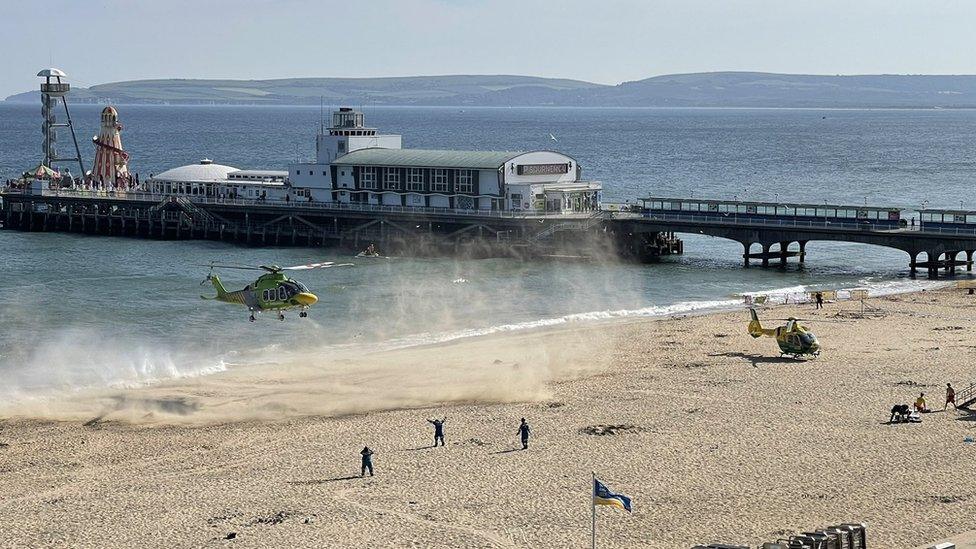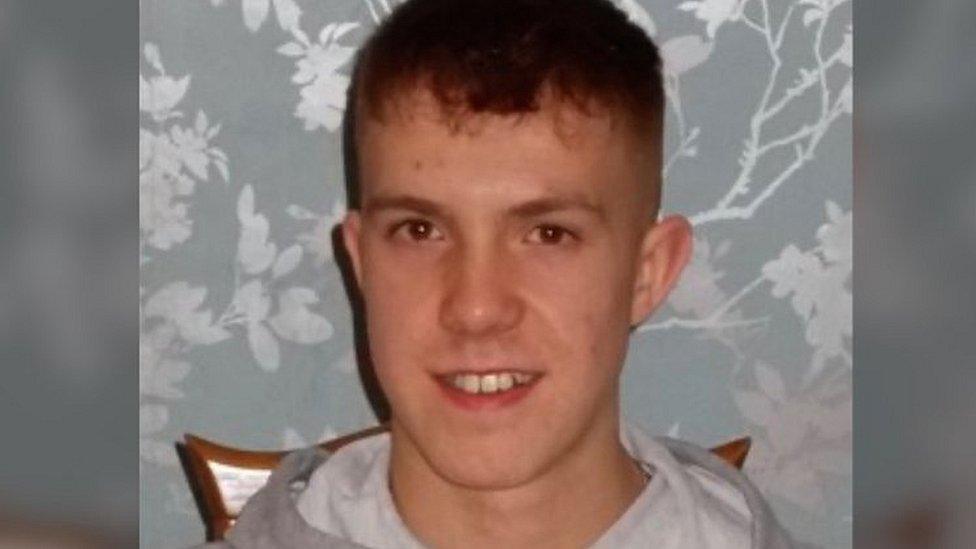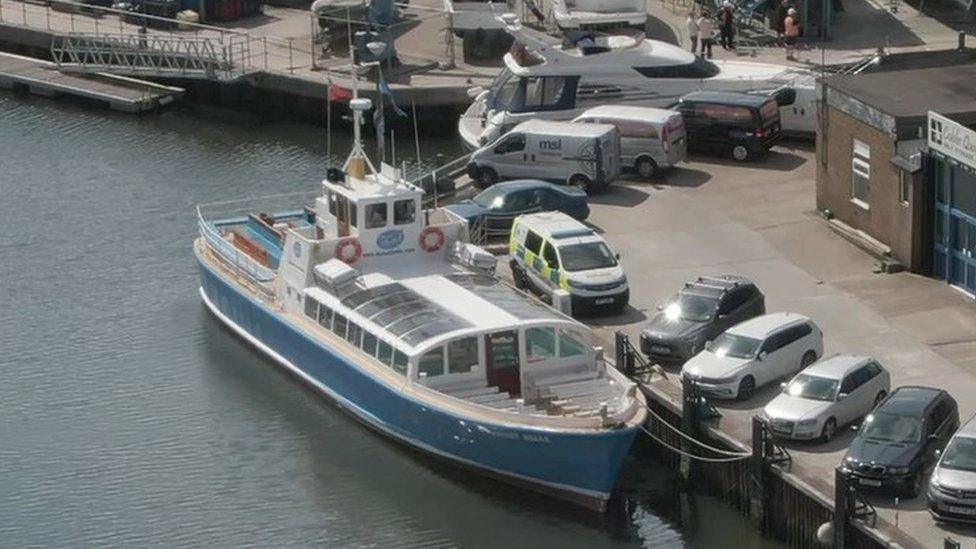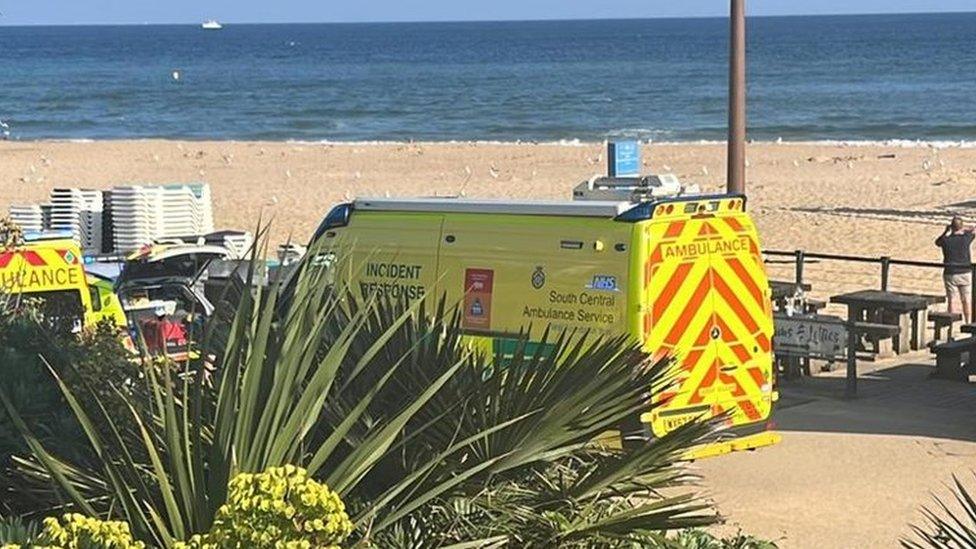Bournemouth beach deaths: Sunnah Khan's family torn apart, says mum
- Published

Stephanie Williams said her family was struggling to deal with the death of her daughter Sunnah Khan
A mother whose 12-year-old daughter drowned off Bournemouth beach said the death had "torn apart" her family.
Sunnah Khan, from Buckinghamshire, is thought to have been caught in a rip current near the town's main pier.
Another teenager, Joe Abbess, 17, from Southampton, also died and eight others were injured in the incident on 31 May.
Stephanie Williams, Sunnah's mother, said the past three months had been "horrendous" and that her family was struggling to process their loss.
"There's just no words to describe how that feels as a parent, to see your child like that is just very difficult," she said.
Speaking to the BBC, Ms Williams said she remembered the day "really vividly".
"It was a normal day, actually it was a really nice day," she said.

Stephanie Williams wants water safety to be taught in schools following Sunnah's death
She said her youngest daughter was at home with chickenpox while Sunnah, her brother and other sister had gone to the beach.
"My son had been sending me pictures, I hadn't thought anything - why would you?" Ms Williams said.
"I just thought 'oh, that's lovely' and I got on with my day. Then my phone rang. It was someone's dad and that's when he told me what had happened."
Ms Williams said her family was still coming to terms with Sunnah's death.
She said: "It's like, if you have children and ever lost your child in a queue or in a busy area for like a second, that feeling you get when your stomach falls out because you can't see them.
"That's what it's been like for the entire three months [since Sunnah's death].
"It's just been horrendous. So I don't know how you start to process what's happened - from a completely normal day doing a completely normal activity to death - it's just unthinkable."

The beach was cleared as emergency services attended the incident on 31 May
Ms Williams said her other children were also struggling.
"They're all handling it really differently," she said, adding: "My son was there and was also in trouble in the water, so he has got his own added trauma on top of losing his sister.
"My middle daughter was also there. She wasn't in the water but she's really struggling. She [Sunnah] is all she's ever known, they shared a room, she is devastated."
She said her youngest daughter, aged five, did not really understand.
"They're all handling it completely differently. It's just been awful. It's completely torn us apart. We all really miss her."
Ms Williams said she and her husband had returned to the beach a few weeks ago and were surprised by the number of young children swimming quite far out with no adult supervision - and the lack of signs warning of the dangers.
Sunnah's mother said she has written to Bournemouth, Christchurch and Poole Council (BCP) about the lack of water safety signs on the beach.
"They have a lot of signs about not littering barbecues on the beach... I just couldn't believe there's not a single sign that says anything about the danger of being in the water, especially right next to the pier," she told the BBC.
Since her daughter's death, Ms Williams has been campaigning for better education on water safety.
"Education is key," she said, explaining: "I mean she [Sunnah] was only in up to her chest, and she's 5ft 6ins, so that's not deep water. Everybody would think that's safe - but it wasn't.
"Part of the problem is knowing what to do in that situation but hardly anybody does.
"It's life-saving information and it's not something that is taught in schools. Children learn how to swim in school but it's not enough because you can't swim your way out of that situation."

Sunnah and 17-year-old Joe Abbess from Southampton both died on 31 May
BCP told the BBC a "coordinated multi-agency approach" had delivered a series of immediate actions since the incident in May.
In a statement, it said it worked with RNLI to decide the "period and type of lifeguard cover at any one beach" and had increased the use of safety messages over seafront tannoys.
BCP said it had also placed additional banners and digital media near Bournemouth and Boscombe piers to help promote RNLI's Float to Live campaign message.
The authority added: "Despite the best efforts of the RNLI and BCP Council, and evidence-based risk assessments as well as many years of experience in life-saving, leisure activity on and near the water will always carry a degree of risk.
"We work together to reduce this and to promote safer water use but the sea is powerful and conditions can change rapidly so we will never entirely be able to eliminate the risk of drowning."

Follow BBC South on Facebook, external, Twitter, external, or Instagram, external. Send your story ideas to south.newsonline@bbc.co.uk, external.
Related topics
- Published14 July 2023

- Published27 June 2023

- Published6 June 2023

- Published4 June 2023

- Published2 June 2023

- Published1 June 2023
